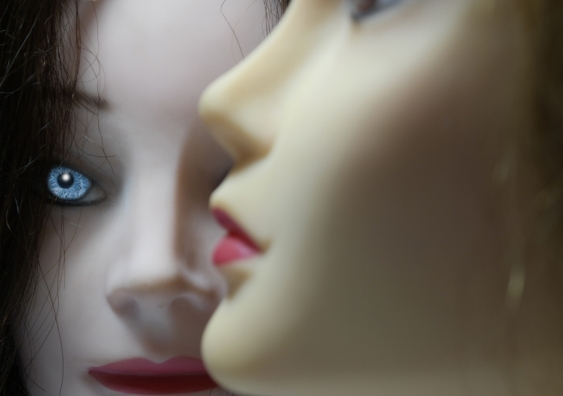Sex with robots: is it healthy to be intimate with artificial intelligence?
Relationships with machines can never be a substitute for human contact, a UNSW Grand Challenges discussion heard this week.
Relationships with machines can never be a substitute for human contact, a UNSW Grand Challenges discussion heard this week.

Belinda Henwood
UNSW Media & Content
0432 307 880
b.henwood@unsw.edu.au
Sex robots are not just coming, they are already here. In a world where we are more connected yet lonelier than ever before, what does this mean for sex, and what does it mean for relationships?
Artificial intelligence (AI) shouldn’t be seen as a substitute for human companionship, said Professor Kathleen Richardson, Professor of Ethics and Culture of Robots at De Montfort University in the UK, and founder of the Campaign against Sex Robots.
Professor Richardson spoke about the unforeseen consequences of sex robots at an event held at UNSW on Monday as part of the UNSW Grand Challenge on Living with 21st Century Technology.
Professor Richardson’s research shoots from a theory surrounding human attachment. Known as the ‘attachment crisis’, the theory suggests that, as society continues to fragment, we see an increase in loneliness as humans struggle to form and maintain intimate relationships with one another.
She rejects the notion that caregiver and therapeutic robots – in particular sex robots – can help humans cope with our inability to connect during this crisis of ‘human attachment’.
Instead, she makes a case for the importance of human relationships. She argues that robots should not serve as a solution for those who struggle with isolation and loneliness.
“People are not the same as machines. It is not the same relationship,” she said at the event.
Professor Richardson said it wasn’t possible for humans to develop relationships with dolls and machines, as a fundamental part of humanity involved socialising with other humans.
“Love is a concept between living people. I don’t think it’s possible to have a sexual relationship between a human and another species,” she said.
“Species have their own ideas of love and are the best to make relationships with each other.
“Relationships also imply mutuality; no human can ever have a relationship with a human-made artefact.”
Other experts such as sexologist Dr Nikki Goldstein acknowledged that sexuality was an incredibly diverse spectrum and said that just because some desires were different, it didn't mean they were wrong.
“There’s no such thing as normal when it comes to sex,” she said.

Human relationships are irreplaceable: Professor Kathleen Richardson.
Dr Goldstein was one of three experts participating in the panel discussion “Sex Robots Have No Taboos” at the Festival of Dangerous Ideas held in November this year.
She joined Dr Xanthe Mallett and UNSW Scientia Professor Rob Brooks in debating the ethical, legal and moral issues around sex robots and AI.
Professor Brooks, from the School of Biology, Earth and Environmental Sciences and Director of the Evolution & Ecology Centre, took on another viewpoint, suggesting that sex robots could lead the next sexual revolution, making humans more relaxed about sex.
The panellists were in agreeance that sex robots would provide some benefits to those who struggled with physical and social intimacy.
Professor Richardson also spoke about the influence sex robots had on the way women and girls were perceived.
With the rise of robots came the rise of a new hierarchy of inequality, she said.
Under this new hierarchy women were placed at the lowest tier of the pyramid, with techno-utopianism, robots and AI, and then all other men placed above.
She expressed concern that the new hierarchy reinforced the misogynistic framework that drove the exploitation of women.
“Women are not human, they are property,” she said.
“The ways in which these dolls are built – a lot of them appear young and child-like.
“They are not an accurate reflection of society and the world in which we live in. Robots do not contain universalism.”
So, what's next for the future of humanity's relationship with artificial intelligence and robots? Professor Richardson would like to see legislation against the personification of robots.
“It is not the robots being harmed, it is our relationship with each other,” she argued.
“If we don’t make a change now, the attachment crisis will intensify, the atomisation and violence will become increasingly normalised, the capacity for action of women will be reduced and hierarchies that protect male interests will thrive.
“This is a time to turn the tide.”